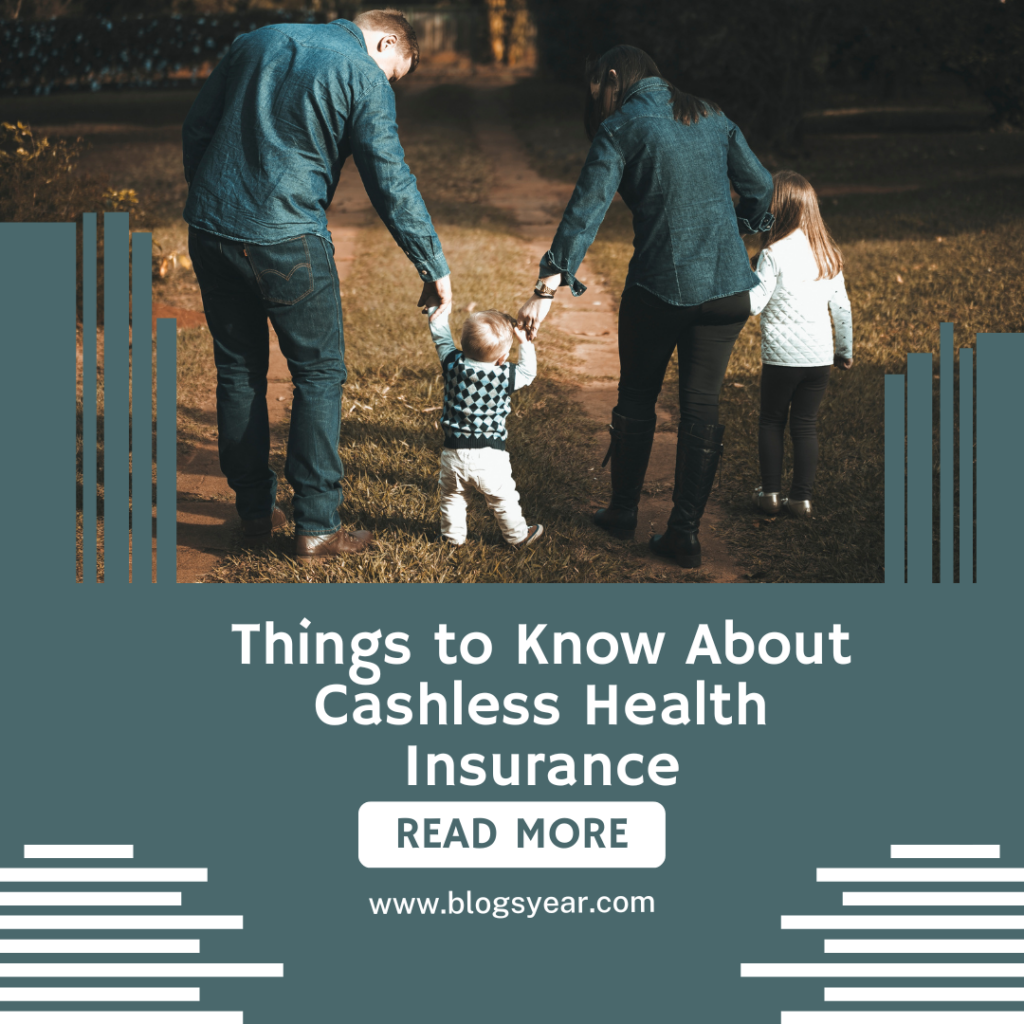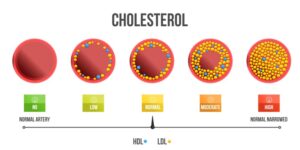Things to Know About Cashless Health Insurance

You are reading a financial planning article instead of learning the fundamentals of cashless health insurance while daydreaming about your ideal home, children’s future marriage, and stress-free retirement.
Also Read:- 14 Things to Consider Before Buying Health Insurance
As you finish the article and the coffee, you find it amusing. The month is coming to a conclusion; everything went according to the budgeted plan, and in a few days, another month will start. Even before the salary was credited, you had begun budget planning.
When you were experiencing a series of scenes concerning the future of you and your family, the dream abruptly came to an end as you heard your wife screaming. You threw the newspaper and empty cup and dashed inside to find out what had happened.
You were shocked to discover that your devoted wife had fallen down the stairs, fractured her leg, suffered a serious head injury, and now requires emergency treatment. All of the upcoming financial plans were destroyed.
You became engulfed in tension, doubt, and anxiety.
How can I pay my medical bills? What about medical costs and prescription drugs? A very extensive list of unnecessary spending then appears before your eyes. Should I get a loan from a friend or family member?
Or should I sell some of my possessions to get money to cover my medical expenses? Medical emergencies are enough to burn a sizable hole in your wallet and wipe out all of your investments and savings, especially with the rapidly rising expense of healthcare.
Is the stress level too high?
Assume for a moment that you have a complete Cashless Health Insurance plan. To secure the hard cash, you do not need to jump from pillar to post.
Instead, you can receive top-notch cashless services from the best hospital in the neighbourhood without spending a single thing from your wallet.
The best cashless health insurance company in India happily pays the cost to the relevant hospital directly, which is the cherry on top for the policyholder.
It’s that easy.
Overview of Cashless Health Insurance Fundamentals
Up until the onset of illness, health is not cherished. When illness knocks on a person’s door without warning, the sick individual is quickly admitted to the hospital.
Financial hardship and a social and mental load on the family head result from this kind of uncertainty.
A healthy body and mind go hand in hand, as the saying goes. But maintaining health in a world of canned food, fast-paced living, and jungle law is quite difficult.
We typically do not consider our wellbeing while pursuing career status and achieving victory goals.
Comprehending the fundamentals of cashless health insurance is essential to understanding the cashless health assurance procedure.
Health insurance is a method that guarantees policyholders will be able to provide their families with the finest available treatment in the event of a medical emergency.
There are times when preventative care may be prohibitively expensive. At these times, appropriate health insurance arrangements come together to help and cover hospital costs. One of the outstanding bets you should make is a cashless medical insurance policy.
It only becomes available for your use in inadvertent or urgent medical situations. The majority of consumers base their decisions on the premium contribution and the total amount insured.
Although we often overlook the several benefits that come with health insurance packages.
The service that allows customers to be transferred to medical facilities for appropriate therapy without having to pay a cent out of pocket is the greatest cashless Mediclaim insurance. The network of their sick bays benefits from cashless hospitalisation thanks to this insurance.
The provider pays your hospital bills directly when you have cashless medical insurance, saving you from having to pay for the treatment and manage the finances.
The medical insurance provider will determine the medical plan’s components.
Cashless Health Insurance universal characteristics
- Pre and Post hospitalization medical expenses
- Planned/Unplanned and emergency hospitalization
- Daycare
- In-patient care
- No claim Bonus
- Loyalty Bonus
- Pre-existing illness cover
- Complementary health check-ups and diagnostic tests
- Daily cash benefits
- Cover for ambulance charges
- Cover for domiciliary treatment, organ transplant, etc
- Cover for critical illnesses like heart attack, cancer, stroke, etc
- Largest hospital network
- Free Look period
- Tax benefits
- A collection of insurance plans controls health screening at regular intervals of time.
- Value-added services (VAS)
-
What Is Cashless Hospitalisation?
Cashless hospitalisation, in which the insurer pays the hospital directly for the medications and treatments given to the insured when the insured is admitted to the hospital, is a fundamental component of cashless health insurance. It aids in avoiding the difficulty of setting up securities and stops reimbursement processes for medical expenses.
-
What Are The Benefits Of Cashless Health Insurance?
If we ever need medical care, whether it be planned, unforeseen, or in an emergency, we will need money to cover all associated costs. Selecting a good Medicare plan is quite effective.
Massive sums of money must be spent on preventative countermeasures. Cashless health insurance is a godsend for those with little financial resources or who lack sufficient funds at critical moments. The convalescent home’s overhead is handled by the backing group.
Let’s look at the fundamentals of cashless health insurance, which provides its policyholders with a number of advantages.
It provides thorough coverage of ambulance expenses, preventive check rates, pre- and post-analysis, and specialist rewards.
The most expensive and comprehensive therapeutic care is available to you and is covered by the cashless sickness insurance contract. In emergency situations, it serves as a barrier.
It protects against a heavy and unpredictably expensive curative burden.
The outcome of the coverage provided by an amazing pharmaceutical protection group outweighs the cost of your insurance charge.
-
What Is The Procedure For Cashless Medical Insurance?
When an insured person is admitted to one of the affiliated institutions, both the institution and the insurance team work to repair any serious harm caused by the cure. A policy year allows for a certain number of claims, subject to the amount insured.
Health insurance protection companies negotiate with various nursing homes after looking into various factors, costs, methods, etc. The insured party covered by this unique protection policy won’t be required to pay the hospitals for their services.
An insurance company ranks network hospitals based on their performance, effectiveness, and thorough quality control.
Additionally, since these standoffs return every year, the agreement might not be renewed in cases where the class does not follow the protective club’s guidelines.
This entire process proves that only the most reliable hospitals are included in an insurance company’s network of recommended hospitals.
Only the hospitals in this network will have access to the cashless facility.
The responsibility for working with the hospital and resolving all claims (both cash and cashless) between the insurance party, the hospital, and you will fall on a company delegate or TPA (Third Party Administrator). He is also responsible for approving or rejecting your claims.
You have a choice between the two ways to submit a claim to the specific insurer. You may submit an application for a refund claim or a cashless claim.
Cashless Claim: In the event of hospitalisation, you must first contact a network hospital in order to be eligible for Cashless Suvidha.
Reimbursement Claim: On occasion, getting the required care may require getting in touch with a hospital that is not in your network. Following treatment, you must pay the health resort’s fees in full and submit a reimbursement request.
After reviewing and approving the bills you submit, the insurance provider reimburses you for the costs you’ve already paid.
-
What Age Must A Person Be To Purchase Health Insurance?
If you want to receive a cover, you must be at least the following age:
Kids are typically covered by health insurance after 90 days, regardless of their minimum entry age. The children can benefit from the health insurance advantages up until the age of 26 if they are registered in a policy with their parents (it is up to 30 with some insurers).
The child must purchase a separate policy in their own name after turning 26 or 30, as the case may be, and may take advantage of the lifelong renewals, if they so choose. Benefits for continuity will be carried over from the previous policy to the new one.
Anyone who is an adult and between the ages of 18 and 65 can acquire health insurance.
A person will not be issued a new health insurance policy once they turn 65.
-
What procedures must be followed for claims following a cashless hospital stay?
The following supporting documentation is required to register a claim.
In addition, if necessary, the insurance company may ask you for the supplemental record.
The main items you must present in order to claim cashless hospitalisation are:
- Copy of your health insurance/ Cashless health Card
- Original medical bills and receipts (in case of reimbursement)
- Statements of medicines and drugs
- Hospital break-up bill
- Discharge Summary
- Investigation reports (ECG, X-Ray, Laboratory)
- Notes of operation theatre
- Prescription
- In case of an accident, a medico-legal certificate (MLC) or FIR
- Cancelled cheque (in case of reimbursement)
- Duly filled Claim form
6. In India, how many different kinds of cashless health insurance are there?
Three general models underlie moneyless health insurance, and they are as follows:
Individual health insurance without payment
In accordance with the protocol criteria, it provides cashless claims to the person, or policyholder, to offset incidentals at the health centre accompanied by obvious benefits.
Health insurance for a family that is cashless
You can override the cashless benefits of the system by having all the branches of your home capped under the same agreement, or beneficiaries, in a floater transaction.
Cashless Health insurance for the elderly
As the name suggests, this particular arrangement dispenses guards who have a special draught for senior citizens. It provides protection against pre-existing conditions, hospital transportation costs, medication usage, etc. as outlined in the policy agreement.
Group health insurance without payment
There are policies created especially to protect a group.
-
What coverage options are offered by Cashless Health Insurance?
Typically, assurance contributors in their Medicaid pitch a variety of exposures.
Despite this, a Cashless health plan must include some global disclosures, such as:
- There is no fee for using online hospitals.
- hospitalisation costs both before and after
- hospitalisation for more than 24 hours as a patient Daily payment in cash
- medical services
- Charges for in-home care
- Unclaimed Bonus (NCB)
- Complimentary
-
Medical examinations Is there anything the insurance won’t cover?
These methods traditionally place a stopper on the expenditure of money on medical care. These could include the expense of prescription medications, medical procedures, anesthesiologists’ and surgeons’ fees, emergency cars, lodging costs, etc.
Health insurance does not cover non-medical or aesthetic incidentals. The packages that the policy does not reimburse are monitored by the majority of customers.
Non-essential items like air conditioning, television, tissue paper, etc. may be included in the index.
-
Are Pre-Existing Conditions Covered By These Policies?
Yes, most insurance companies will accept cashless offers for pre-existing conditions. But the way the insurance undertaking sets things up has an impact on this knowledge.
-
The Maximum Number Of Claims Per Policy Year
The insurer does not place a limit on the number of claims that may be filed, but the total amount of claims is limited to the Sum Insured amount selected for the policy year.
-
Is it contradictory with alternatives like family maintenance, individual maintenance, etc ?
No, a cashless safety measure is largely equivalent to an individual or family floating policy. It will even offer the same advantages and exclude the same things.
-
What distinguishes it from co-pay?
Participants and insurance companies split the cost of the hospital in co-pay applications. A set percentage of healthcare costs are covered by the clientele.
Meanwhile, the insurance industry pays for the remainder, which is the biggest piece of the cake.
13 How long is cashless health insurance valid for?
Non-cash health insurance typically has a one-year holding period and renews annually. However, a lot of insurance companies offer a period of two to three years simultaneously.
-
How long may the policy be renewed?
Almost all cashless policies allow policyholders to renew them for the rest of their lives.
-
If the policy is not renewed in a timely manner, what happens?
You will get a grace period of 15/30 days if you fail to deposit the premium by the deadline (varies from insurer to insurer). You should be aware that during that grace period, the insurance plans are not in effect.
-
Can I migrate this coverage from one insurer to another?
Yes, insurance for Cashless Mediclaim can be transferred from one insurer to another. People who choose portability must give their current insurance provider this information 45 days before their policy is due to renew.
-
How long does it take to resolve an Indian Cashless Medical Claim?
The insurance company must resolve the compensation claim in accordance with the regulations established by the Insurance Regulatory and Development Authority of India (IRDAI) within 30 days of the day the most recent crucial credential was acknowledged.
The insurance company is responsible for handling the claim and paying interest when it is delayed, at a rate that is 2 percent greater than a bank. The interest is computed from the time the conclusive imperative paperwork is obtained to the moment the claim is paid.
Even so, the insurer has the option to conduct an inspection before paying the fees. An investigation of this nature must start as soon as possible, i.e., no later than 30 days after receiving all pertinent records.
In these situations, the insurer is required to resolve the claim within the 45-day window.
-
Why Are Cashless Medical Claims Denied
The proper guard is provided to policyholders by the responsible insurance providers. However, the claims made by such companies are occasionally rejected for a variety of reasons.
The following are some potential causes of rejection:
When there is an emergency, subscribers are frequently pressured to receive treatment in local hospitals without a relationship with their insurance provider.
The insurer may then legitimately reject the application.
The information provided by the polyclinic frequently falls short of expectations. It happens when the on-call physician fails to give a thorough summary of the complication.
Therefore, the health insurance provider can reject the claim’s legitimacy.
A cashless claim may be rejected if the insurer receives the pre-auth in a rush and has little time to analyse the documentation.
-
How can I submit cashless claims for health insurance?
A hospital admission may be scheduled, unplanned, or due to an emergency. But the procedure listed below must be followed in order to use cashless insurance in any of the scenarios.
Hospitalisation Anticipated Claim:
A planned hospitalisation is when a doctor suggests hospital care to a patient in advance.
It is best to file a claim notification a few days prior to the incident’s hospitalisation. Verify if the hospital is on the list of channel hospitals that accept insurance.
Before checking into a hospital, the insured should have identification and a health card on them. Present your insurance card or policy number to the hospital staff and complete the pre-authorization form with the necessary information.
The organisation will work in conjunction with the insurance provider or the third-party administrator (TPA). The cashless claim starts after approval.
After being discharged, make sure you sign, check, and gather copies of the medical bills.
Unexpected Or Emergency Hospitalisation
Health emergencies never give notice in advance.
The term “emergency claim” refers to a situation in which a person requires immediate hospitalisation due to serious illness, an accident, or any other emergency condition.
Fill out the pre-approval form and include the health insurance card or policy number after being admitted to a network hospital.
The hospital will request authorization for the hospitalisation from the insurer or the Third Party Administrator (TPA).
The claim will then be established by the insurer. After being discharged, confirm and sign all medical bills, and don’t forget to keep a copy for future use.
-
Third-Party Administrator (TPA)
An organisation called Third-Party Administrator (TPA) is authorised to process approved insurance claims by the Insurance Regulatory and Development Authority of India (IRDAI).
As a result, TPA receives information as soon as the patient is admitted to the hospital.
The vastly increased variety of health insurance plans available, as well as the quantity of insurers, impaired the quality of services and caused a backlog in the processing of many claims.
IRDAI thus introduced TPAs to address the aforementioned problems. A TPA card is issued by the relevant TPA and can be created online as an e-card.
Raksha TPA Pvt. Ltd., Medi Assist India TPA Pvt Ltd., Paramount Health Services, and Insurance TPA are a few of the 27 TPAs that IRDA has approved.
On their separate websites, the concerned insurer and TPA also update the progress of Cashless Claims.
- Insurance Ombudsman
You can file a complaint with the company’s hotline if you are dissatisfied with the decision.
You should take your complaint to the Insurance Ombudsman if, after a reasonable amount of time, the concerned company is unable to provide you with a resolution.
I hope you find this comprehensive article on the fundamentals of cashless health insurance useful. You can leave a message below in the comment box if you have any questions about this post. I’ll be delighted to assist.









